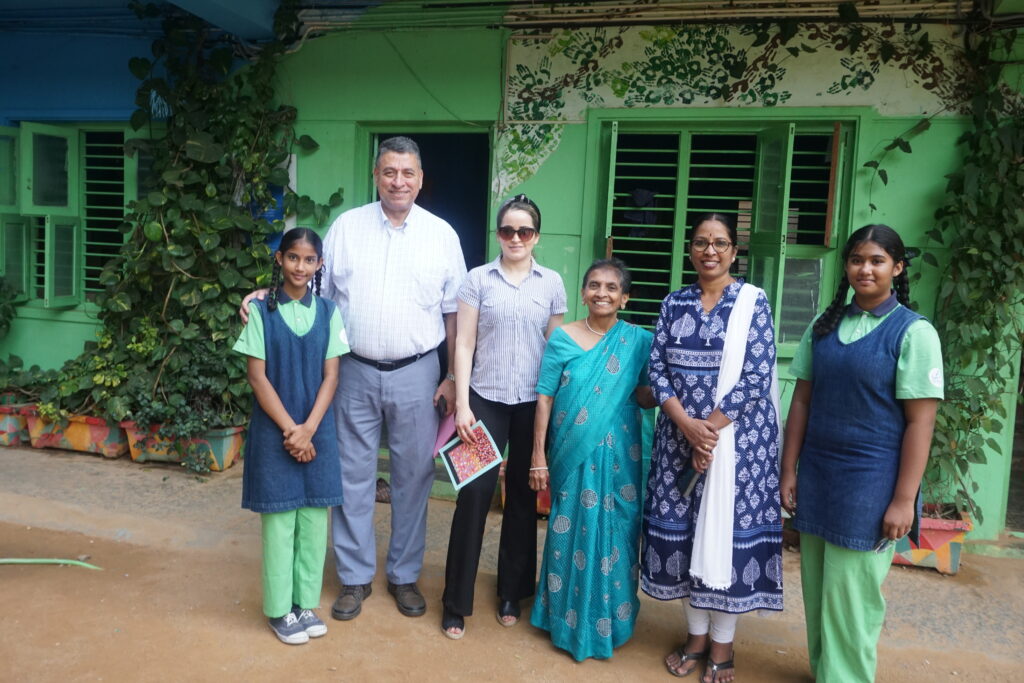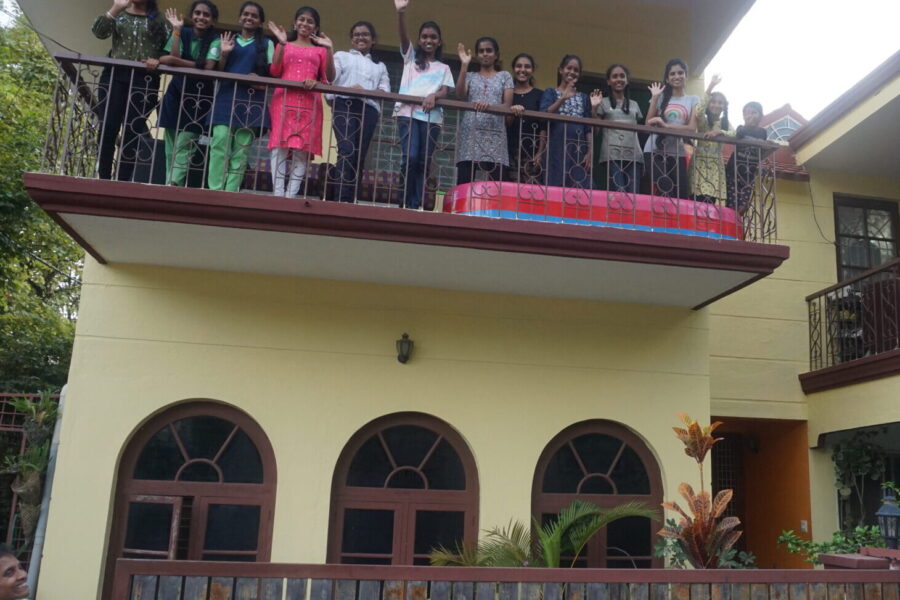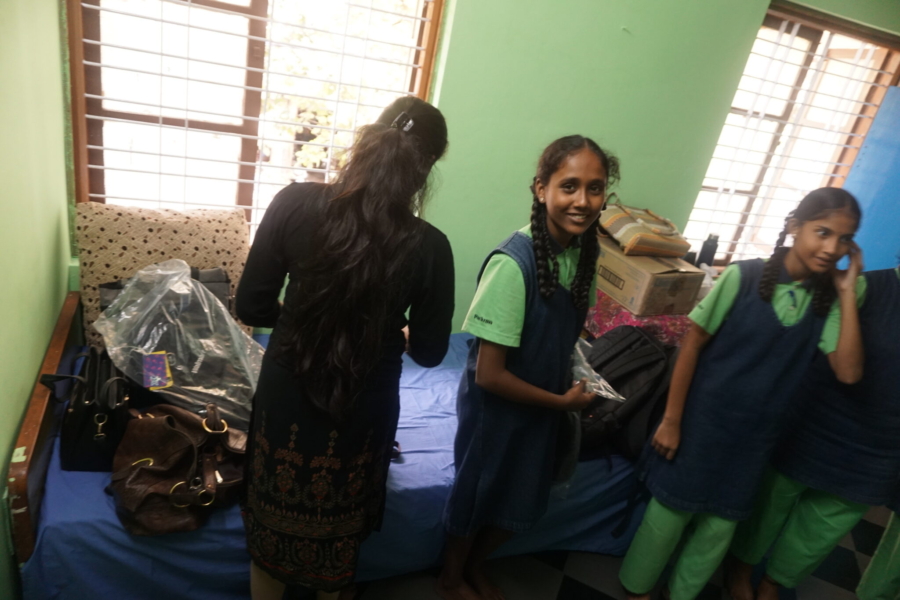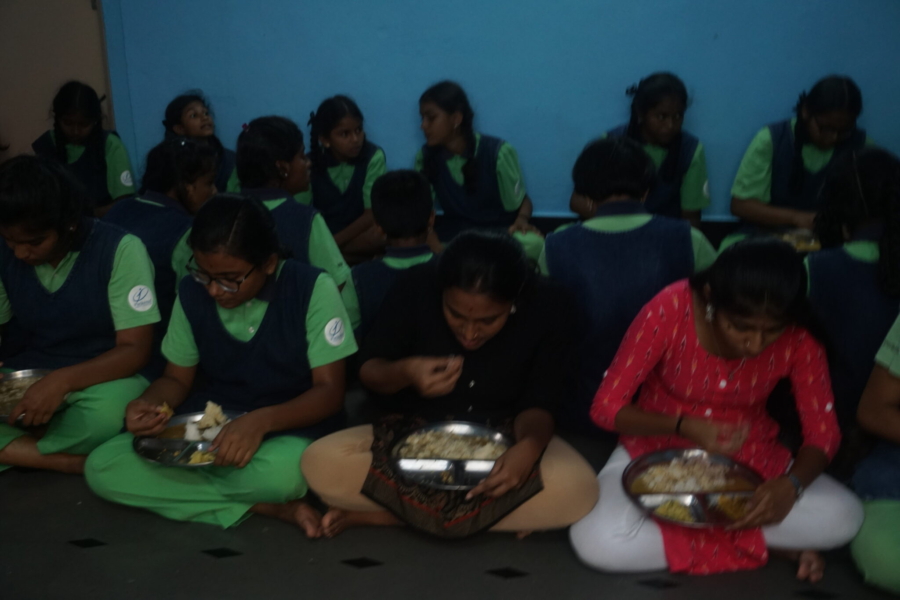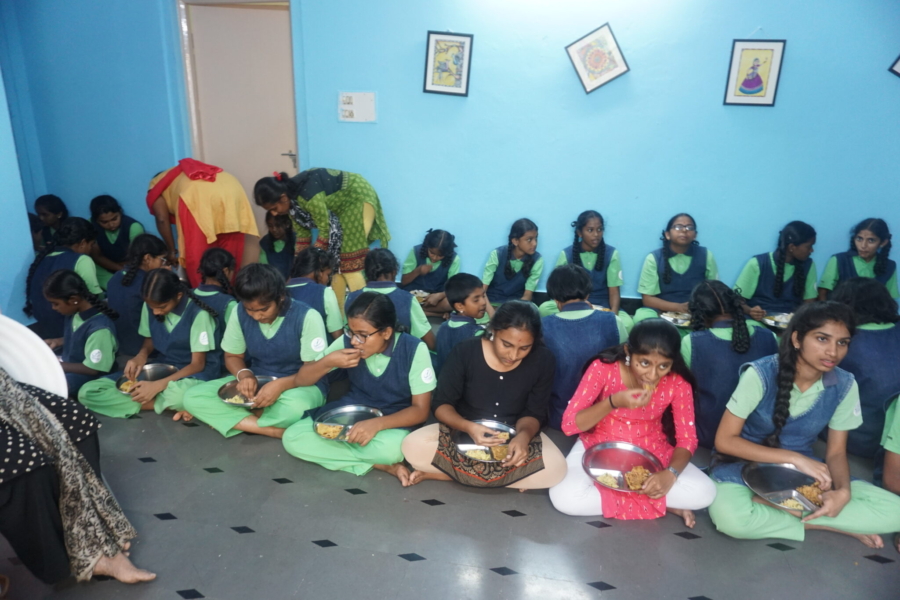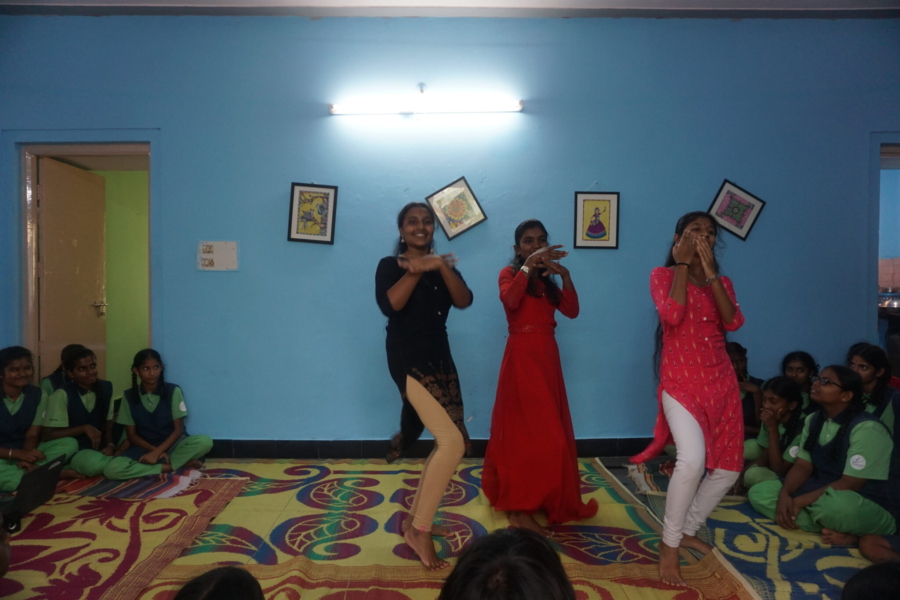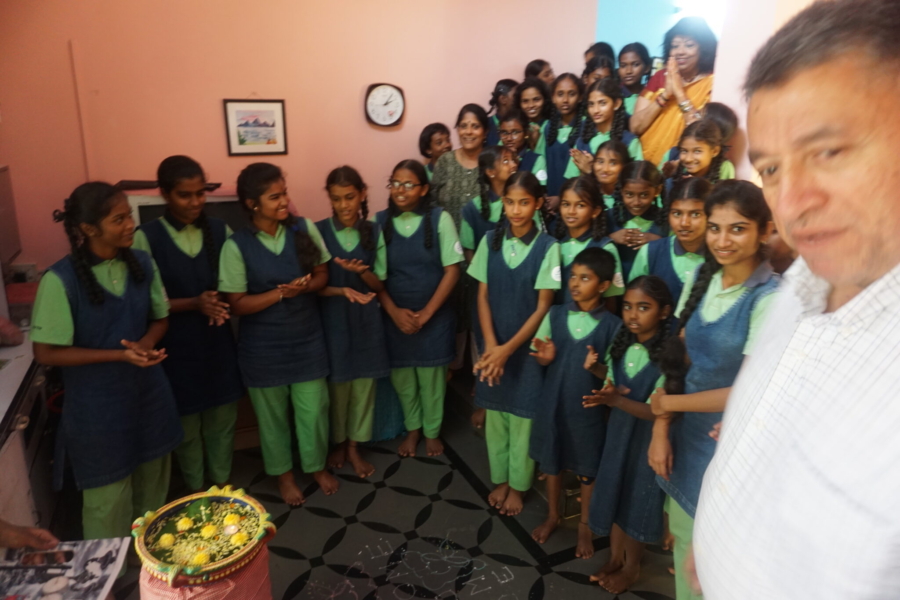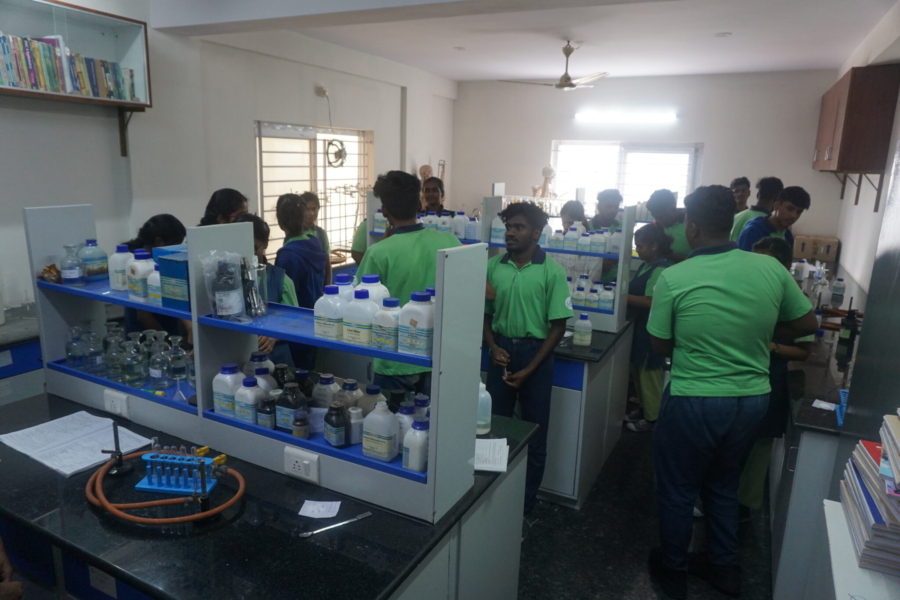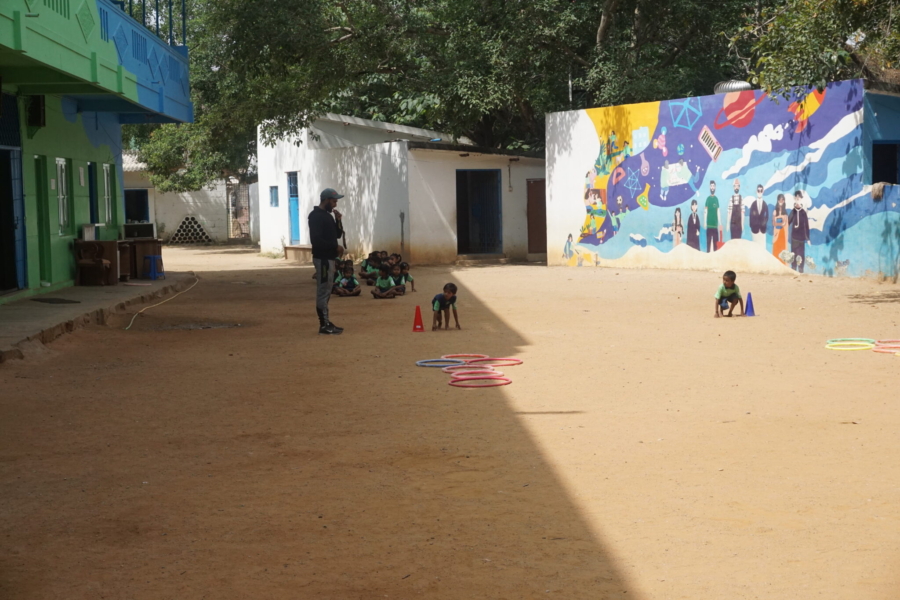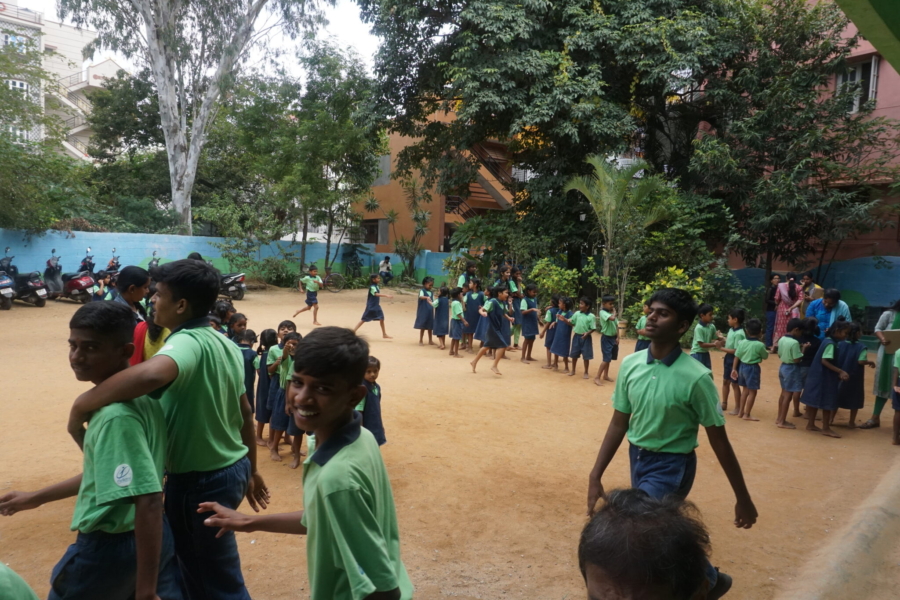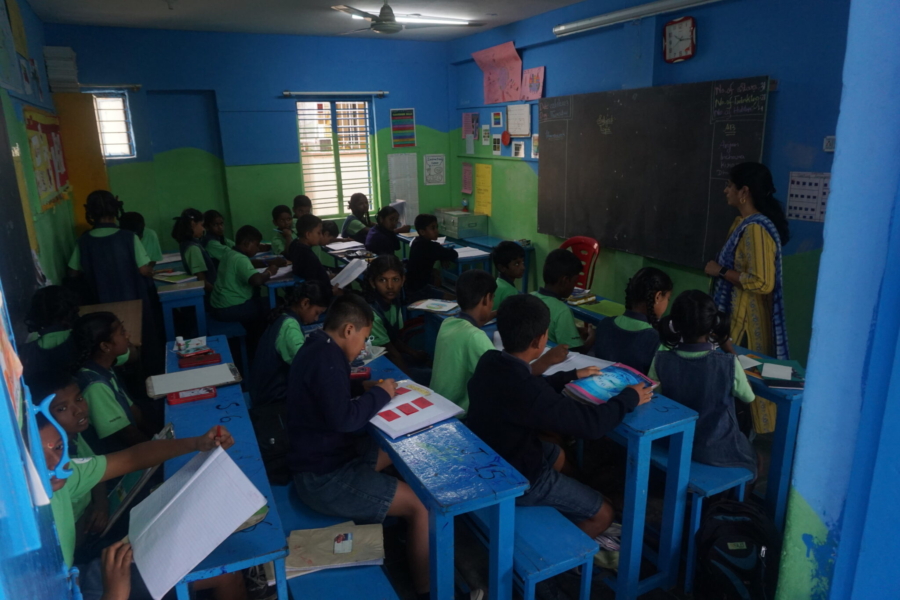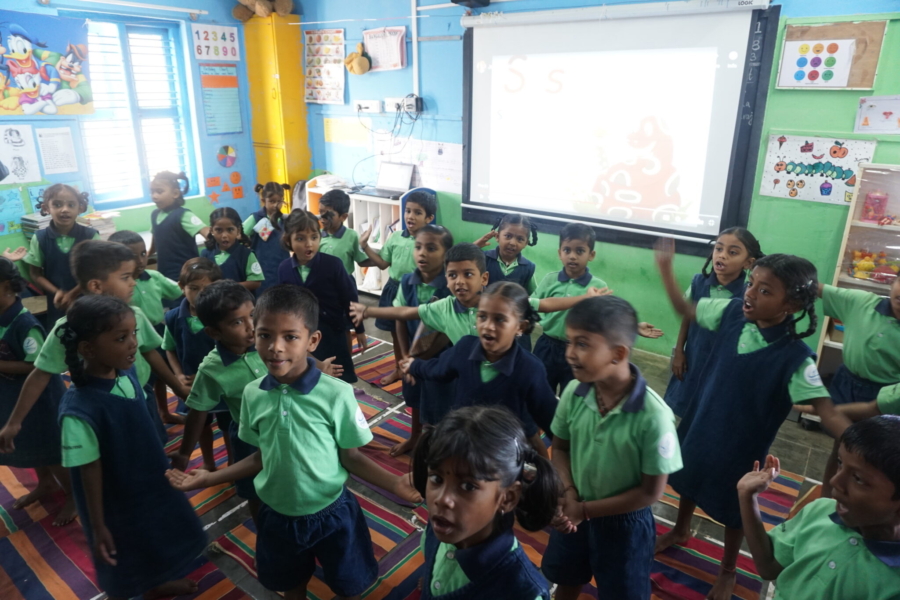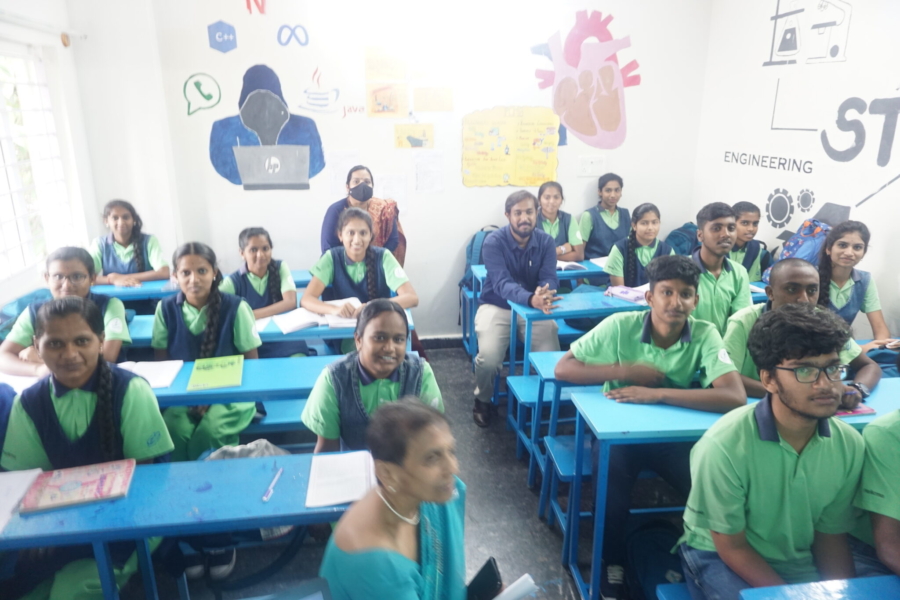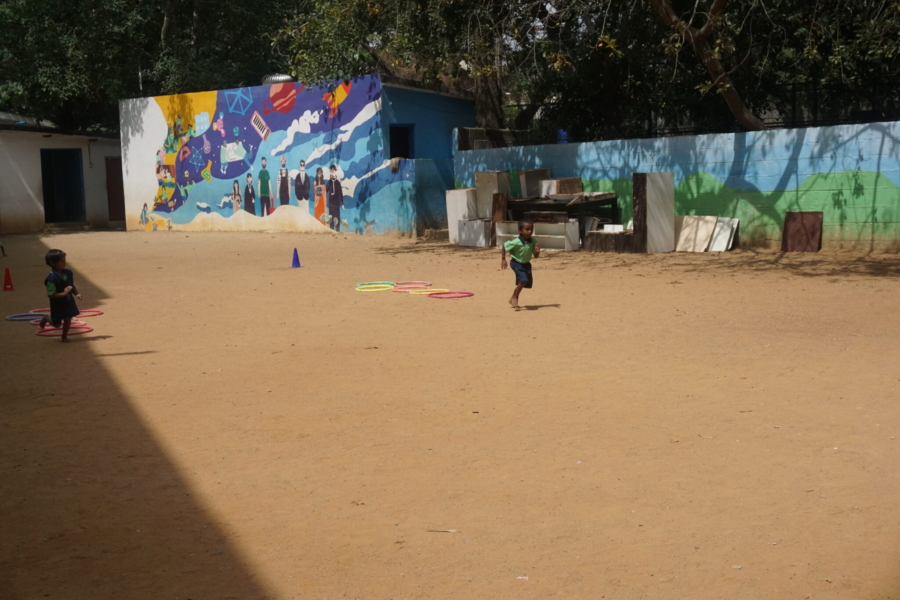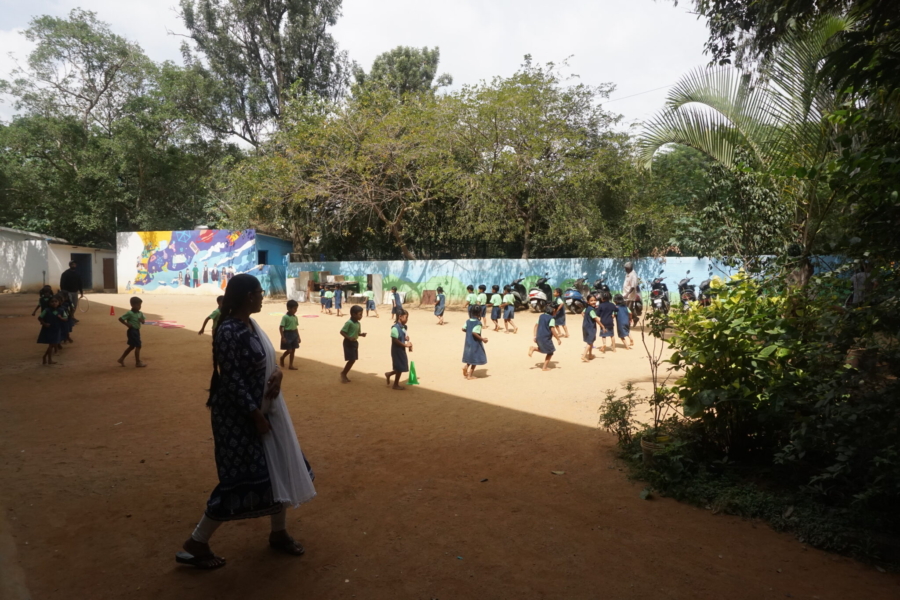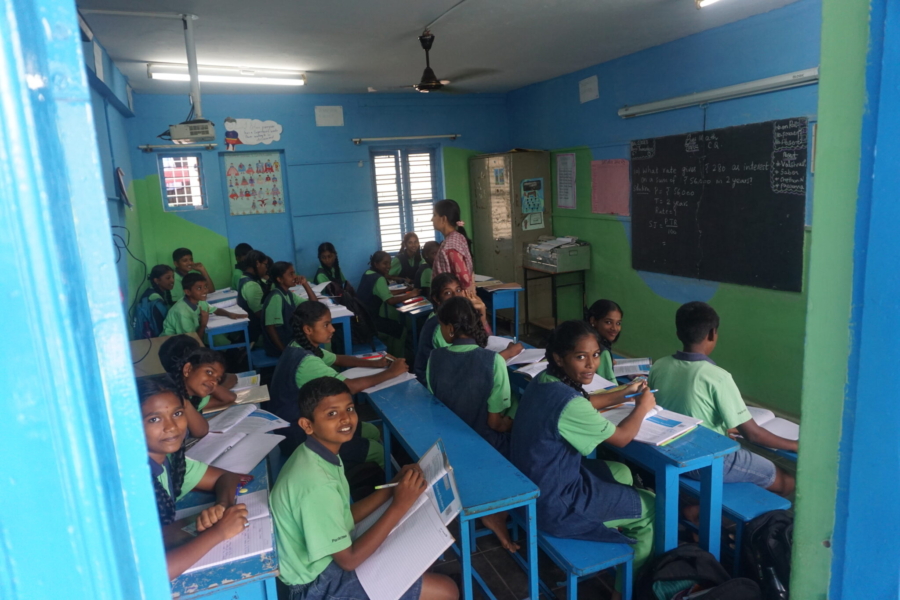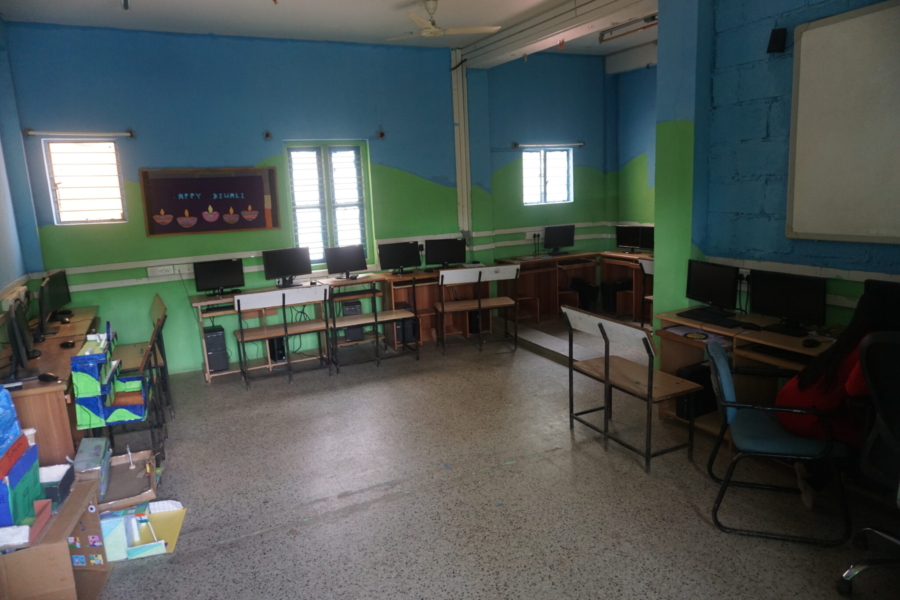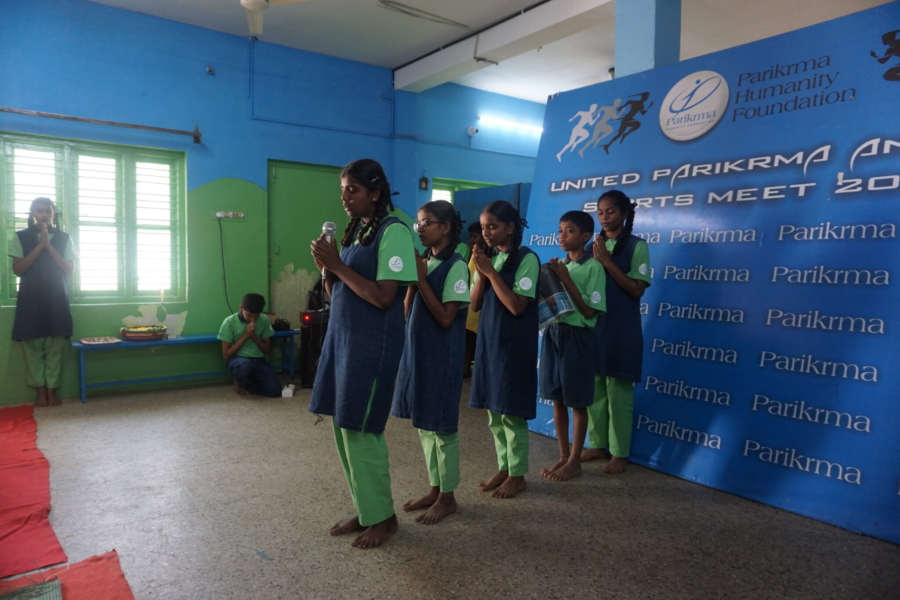As Luis Bourdet finishes his visits to our affiliated sites in India, he travels to Bangalore to the Parikrma Home. Here, standard educational practices are combined with Montessori school practices, and the overall success rate of students is incredibly high.
Visiting Parikrma
“I arrived in Bangalore, a city full of trees and gardens, and perhaps the city with the most order when driving that I had been to in India on this trip. Driving is truly chaotic and challenging in India for those who have not traveled there. Most people walk on the streets, and thousands of bikes and mopeds move without any order. Even animals are common on most boulevards and streets within the city limits,” said Luis.
“The school has a very efficient format for learning and a success rate of graduation above 95%, which is much better than the national average of 8-24%.”
“Our affiliated site, the Parikrma Foundation, operates in this city. They have four schools (Kindergarten-12th grade) within slum areas of the town and a Junior College (a school preparing students for skill training programs and professional university careers). The system of education they utilize in those schools is very distinct, unique, and compelling. It combines Montessori and the typical Indian public school system curriculum. The school has a very efficient format for learning and a success rate of graduation above 95%, which is much better than the national average of 8-24%. Most students come from slum areas and, therefore, are migrants from different states, for which the Foundation implemented all English education. This favors their students, as most higher education is done in English.”
Remarkable Schools for Children in Need
“The system was introduced to some public schools in the area after great success with the support of the local government. The children I met were very confident and well-educated. Although they keep some common Indian customs, primarily due to space, of sitting children on the floors during the early years of school, older children have desks.”
“The school has modern equipment in labs, video communication for class interactions, and classes taught for mental, physical, emotional, and psychological development. They also teach the children to support the community through opportunities like cleaning the little lake in the neighborhood, protecting street dogs, supporting issues at slums, and assisting other people in need,” said Luis.
Our sponsorS helping
“These schools are truly remarkable. Children in India do not usually interact with adults, but not at Parikrma. During my visit, children were assigned to take me through the facilities and coordinate presentations. I learned during my time that families could not afford to take the children to school daily, or they may live too far from the school, so they solicit that their child live in the hostel, and our sponsors really help with the children having their basic needs met at the hostel.”
“The sponsor support ensures that children boarding at the hostel have food, hygiene items, school supplies, and sufficient bedding. The children appreciate this opportunity because they live under challenging circumstances with their own family and in a slum area, where housing is under standards and very poor,” said Luis.
***
How do I sponsor a child with Children Incorporated?
You can sponsor a child in one of three ways: call our office at 1-800-538-5381 and speak with one of our staff members; email us at sponsorship@children-inc.org; or go online to our sponsorship portal, create an account, and search for a child in that is available for sponsorship.

